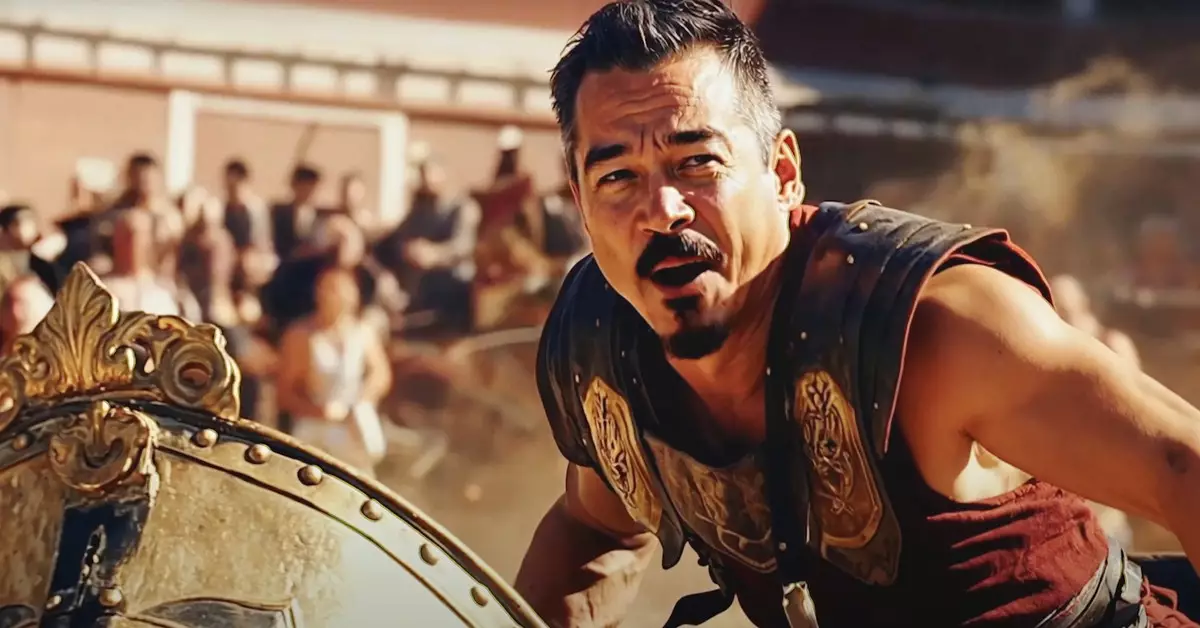In an age where technology promises to propel creativity and storytelling into new realms, TCL’s recent foray into AI-generated short films serves as an intriguing case study. While the intent behind these projects suggests an innovation remarkably ahead of its time, the end products expose the shortcomings of current artificial intelligence applications in the realm of animated storytelling. In this analysis, I will dissect each film released by TCL through its TCLtv Plus platform and evaluate how they represent the broader conversation regarding AI in cinema.
TCL’s venture into AI-generated films is reminiscent of an ambitious artist experimenting with a new medium but lacking the necessary skill or understanding to harness it effectively. The initial trailer for “Next Stop Paris” hinted at a poorly executed concept — characters with stiff movements, strangely disembodied speech, and unsettling animation quality. It elicited such a polarized response from audiences that one could reasonably assume it would deter the company from further AI endeavors. However, not only did they proceed with five additional short films, but they also failed to address the core issues that plagued their initial offering.
It appears that TCL is banking on the novelty of AI while disregarding the foundational elements that make films engaging. Even in the supposed improvement found in subsequent films, the animated sequences are plagued by marked mechanical expressions and awkward pacing. Instead of feeling fully realized, the characters seem trapped in a digital void, where creativity is stifled by the limitations of technology.
The five new films, while slightly more polished than the cringe-worthy “Next Stop Paris,” still exhibit glaring flaws. For example, one film loosely inspired by Ray Bradbury’s story “All Summer in a Day” attempts a narrative laden with ambition. A girl experiences a rare glimpse of the sun, but the execution—a convoluted escape from a basement—leaves viewers scratching their heads rather than feeling the thrill of her journey. The supposed climax is marred by poor direction, resulting in a lack of coherence that detracts from its emotional potential.
Next in line is “Project Nexus,” which resembles a rushed teaser rather than a short film. Despite presenting a plot that could have unfolded into something captivating, the dialogue and animation falter, leaving viewers longing for more. Rather than crafting a fully formed narrative, it ends abruptly with “to be continued,” contributing to the viewer’s frustration rather than excitement.
A particularly strange interpretation is found in the docufiction short featuring Dr. Warren Brown’s avalanche incident. While the premise is grounded in a true story, the use of AI to reconstruct traumatic moments leads to a disjointed experience. Flashbacks interspersed with human elements falter under AI’s mechanical touch, resulting in a chaotic stream of images that fail to evoke empathy. One wonders whether creative license has surpassed ethical considerations in this approach to storytelling.
Similarly, “The Audition” flits into the realm of absurdity, yet lacks the humor and charm necessary for effective comedy. The bizarre transformation of the actor at the behest of a casting director becomes tiresome rather quickly, simply serving as a reflection of the awkwardness surrounding AI originality. In a world that increasingly embraces authentic storytelling, such works could quickly alienate a potential audience who may be craving genuine connection.
Lastly, “Metamorphosis” presents a haunting tale about a woman deteriorating into a slug, which borders on the unsettling rather than thought-provoking. Such visceral imagery risks leaving a sour taste rather than a poignant takeaway. The premise of physical transformation could have been a metaphor for emotional growth or isolation; however, it instead flounders into the grotesque.
TCL’s foray into AI-generated cinema reveals not only the technology’s growing pains but also a misunderstanding of the storytelling craft. Each film carries the potential to explore profound themes; however, the execution lacks the clarity, emotional intelligence, and nuanced artistry necessary to engage audiences. As this technology continues to develop, one must hope for deeper deliberation about the implications of using AI in creative fields. The future may hold promise, but for now, TCL’s efforts stand as a cautionary tale about the perils of rushing into innovation without adequately grasping the artistry of storytelling.

